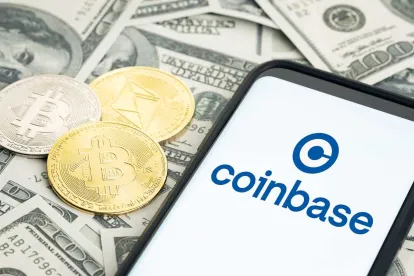As use of cryptocurrency investment has increased throughout the world, regulators have faced a bevy of novel questions, especially related to applying different strains of law to regulate novel digital assets. To date, courts have not decisively concluded whether or not cryptocurrencies – in any of their myriad forms – are definitively “investment contracts” (and therefore securities) under the meaning of the Howey test[1], or whether they are solely under other regulators’ authorities – like the Commodity Futures Trading Commission. Despite investors’ lack of clarity in enforcement and regulatory risk contexts, the rapidly evolving legal landscape has evaded an easy answer.
This lack of clarity has not stopped the Securities and Exchange Commission (SEC) from bringing actions against issuers, backers, and now, against individuals, it accuses of insider trading. Filed in the US District Court for the Western District of Washington, the SEC, in a first-of-a-kind action, accused three men, Ishan Wahi (a former manager at Coinbase Global, Inc.), Nikhil Wahi (Ishan Wahi’s brother), and Sameer Ramani (a friend of the Wahis) of violations of Section 10(b) of the Securities Exchange Act (15 US.C § 78j(b)) and Rule 10b-5 (17 C.F.R.§ 240.10b-5) for their alleged scheme to trade based on nonpublic information known to Ishan Wahi due to his employment with Coinbase.[2] Almost simultaneously, the US Attorney’s Office for the Southern District of New York (SDNY) indicted Ishan Wahi, Nikhil Wahi, and Sameer Ramani for wire fraud over the same conduct, though absent any securities fraud and the underlying determination of the SEC that the crypto assets the Wahi brothers and Ramani traded were “securities” for purposes of the Exchange Act.[3]
These cases accentuate the current lack of regulatory certainty and absence of a clear framework in place concerning digital assets. Moreover, this action could have significant implications for regulated entities and even other operators in the crypto space. On balance, the case may spark further legislative and/or regulatory action and ultimately provide greater, much-needed clarity with respect to the regulatory scrutiny of digital assets.
Facts
In its complaint, the SEC alleged that Wahi repeatedly tipped his brother and friend with insider information regarding Coinbase’s “listing announcements” obtained through his employment as Assets and Investing Products group manager at Coinbase. Coinbase would announce specific new crypto assets listed for trading, sometimes only minutes before the crypto assets were pushed on Coinbase’s platform. This insider information was allegedly used to trade in advance of at least 25 listing announcements, earning at least $1.1 million in profits.
Notably, while it was alleged that at least nine of the crypto assets traded were “crypto asset securities,” those particular crypto assets could arguably be described as utility tokens and/or tokens relating to decentralized autonomous organizations (DAO). The “crypto asset securities” explicitly identified in the complaint were: AMP, RLY, DDX, XYO, TRGT, LCX, POWR, DFX, and KROM.
After receiving the tip from Ishan Wahi, his brother and their friend would, according to the SEC’s complaint, immediately purchase newly launched assets and either sell them once the masses on Coinbase began purchasing the tokens, or they would swap the purchased tokens for more stable cryptocurrencies (like Ether or Bitcoin) to lock in their ill-gotten gains.
Litigation Analysis
As seen in the SEC complaint, for each of the nine named “crypto securities assets” that defendants were alleged to have purchased based on nonpublic information, the SEC applied the Howey test and alleged that the nine named crypto assets were “investment contracts” because they constituted an investment of money, in a common enterprise, with a reasonable expectation of profit derived from the efforts of others.
For example, with respect to the common enterprise component of the Howey test, examples of common, supporting fact patterns relied on by the SEC include that the funds raised via purchase of a crypto asset would be for the launch, development, and/or improvement of a platform, protocol, or other projects. Furthermore, the crypto assets were supported by extensive marketing indicating, inter alia, that the total amount of crypto asset was finite (e.g., by virtue of supply and demand, purchasers of crypto assets could potentially derive profits from increasing demand for the crypto asset increases with the expansion of users/services in the face of limited supply of tokens) and/or via staking (i.e., “locking up” a crypto asset for a period of time as a way of contributing to a blockchain network in exchange for rewards, generally in the form of additional crypto assets).
However, the determination of whether a crypto asset is a security is highly fact specific, and there is currently no clear US regulatory framework in place. The SEC’s underlying analysis is not well-settled jurisprudence, and similar fact patterns can also be found with respect to other crypto assets that the SEC has not alleged to be securities, e.g., Ethereum.
Another issue raised is whether the SEC will attempt to apply this rubric by default to all varieties of digital assets – a successful conviction in this matter on the SEC’s theory may not necessarily expand their analysis to Non-Fungible Tokens (NFT) or other crypto assets like stablecoins. As such, while these matters may provide some guidance for certain assets, that guidance may not map onto dissimilar fact patterns.
It is further notable that neither Coinbase (which served as the exchange platform where the alleged “crypto asset securities” were offered) nor the issuers (i.e., creators) of alleged “crypto asset securities” were named as defendants in the action, although liability may implicitly arise if the identified “crypto asset securities” are indeed found to be securities (e.g., liability arising from offering/selling unregistered securities in the absence of an exemption, if applicable).
Lastly, the fact that two regulators are bringing separate actions suggests that there may not be a consensus on who the primary regulator should be and who should take the lead. Confounding the issue further is the Commodities Future Trading Commission’s issued statement, which calls into question whether the SEC and SDNY attorney’s offices are regulating crypto assets through enforcement actions instead of a formal regulatory process that would allow the public to comment. Plainly, this agreement may require more formal guidance from state and federal legislative branches, less various judicial and executive branches are required to fight it out in court.
In the short term, the case will likely take significant time to resolve, causing further extended uncertainty for funds and investors operating in the crypto space. For example, the SEC’s action may be suspended pending the disposition of the SDNY’s parallel action or another separate proceeding, or delays could result from the intervention of a third party such as Coinbase or another crypto exchange, or an issuer(s) of a crypto asset that the SEC alleged to be securities with interest in avoiding the SEC’s classification of such assets as securities.
In the longer term, a possible positive outcome could be that the eventual ruling could bring about some resolution to whether issuances of and investments in digital assets are subject to federal securities laws. However, any ruling on that topic in Wahi is likely to pertain only to the nine subject digital assets and would not apply to other digital assets, where the SEC may continue to push for classification as a security. Under chair Gary Gensler, the SEC has increased focus on crypto generally, warning of risks for investors. Gensler has clarified that the SEC would act under its existing authority to regulate such crypto assets that can be defined as securities and that platforms dealing in regulated digital assets would be required to register with the SEC, unless subject to an exemption under the applicable securities laws. If certain digital assets are determined to be securities, an issuer, investment fund, or fund manager dealing in such assets may be subject to registration requirements under the Investment Companies Act and/or Investment Advisers Act.
Takeaway
Given the current regulatory environment, it is incumbent for any potential investor in, issuer of, or party transacting in cryptocurrency to be aware of the risk of enforcement from various government entities. Further, as no definitive rulings on the regulatory regime which governs cryptocurrency in the United States yet exist, and the likelihood of future state and federal legislation on their mining and use, companies and individuals, should exercise a high degree of caution when evaluating their potential risks and keep an ear to the pavement as more rulings, proclamations, and legislation emerge from the courts and governments. Such risks should be disclosed in marketing materials and investment prospectuses such that the uncertainty to which crypto assets are subject is rigorously explained.
This first-of-a-kind case is expected to shed light on key regulatory compliance issues surrounding crypto assets, including cryptocurrencies and potentially even NFTs. As the first major law firm to purchase land in the metaverse, ArentFox Schiff is closely monitoring developments in these cases and any related developments at the SEC, CFTC, or other key considerations in the crypto asset space.
FOOTNOTES
[1] SEC v. W.J. Howey Co., 328 US 293 (1946).
[2] SEC v. Wahi, No. 2:22-cv-01009 (W.D.Wash. Jul. 21, 2022), https://www.sec.gov/litigation/complaints/2022/comp-pr2022-127.pdf.
[3] United States v. Wahi, No. 22-cr-392 (SDNY Jul. 21, 2022) https://www.justice.gov/usao-sdny/press-release/file/1521186/download.





 />i
/>i

